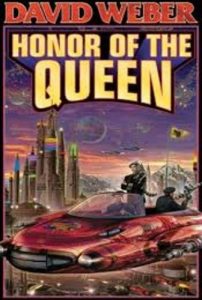 I do not wish to be too sick to write a review, as what if I fall behind in my reviewings? But contrariwise, what if I write a useless review to which people respond, “Hey, stop writing reviews while you’re sick, Sicky!” And then… well, I haven’t really been able to define the bad thing that happens next, probably because my head is too simultaneously congested and medicine-floaty to concentrate that long. But clearly, consequences will abound. All the same, I’ve written way too much to back down now, even if none of it has anything to do with Honor Harrington just yet.
I do not wish to be too sick to write a review, as what if I fall behind in my reviewings? But contrariwise, what if I write a useless review to which people respond, “Hey, stop writing reviews while you’re sick, Sicky!” And then… well, I haven’t really been able to define the bad thing that happens next, probably because my head is too simultaneously congested and medicine-floaty to concentrate that long. But clearly, consequences will abound. All the same, I’ve written way too much to back down now, even if none of it has anything to do with Honor Harrington just yet.
Which, yeah, I finally read the second book of that series, The Honor of the Queen. In a lot of ways, it is a clone of the previous book. Well, sort of. At least, the setting is unchanged.[1] That setting being some 1700 years in the future, where mankind has long since spread forth from Earth, discovered the means for faster-than-light travel, only of course politics are always basically the same and now there’s a cold war between the honorable, if occasionally too doveish, Manticoran system and the wily, expansionistic and probably pinko commie Republic of Haven. You may recall (or may not, depending on how much I mentioned any of this last time) that our plucky heroine Honor Harrington got caught up in the apparent beginnings of that cold war while On Basilisk Station, with the results that she proved her pluck to herself, her subordinates, and her Queen’s military chain of command.
Now it is some years later[2], and Honor has been picked to command a task force on a diplomatic mission to a pair of backwards religious worlds that rejected all technology[3], with the result that they are insular and range from sexist to incredibly misogynistic, all of which would be good reasons to continue ignoring them and leaving them to their petty internecine religious warfare, except that they make a good buffer (or forward base, depending on whose team you are rooting for) between Manticore and Haven, much like Basilisk Station did last time. If you think this means that we’re about to be treated to another display of extreme competence in the face of insurmountable odds, during which Honor will impress allies, enemies, and neutral third parties alike with her capability and her, well, honor, then you are clearly reading the correct series. It’s interesting, because even without knowing that there are a whole bunch of books left to read, I would have known after reading the first one that there’s really no chance whatsoever that she’ll fail at what she sets her goals to, but the pacing is so much improved[4] over the first book that I was able to wring almost as much excitement out of wondering how the success would occur as I would normally spend on wondering whether it would.
Things I am looking forward to in future books: whether the revealed personality “flaw”[5] will cause her any future problems; the outbreak into an actual war of some kind between the two rival, uh, nations I guess? That’s the closest analogue, anyway. Oh, and whether the hyper-intelligent empathic cat creature will stop seeming weird eventually. At least it no longer seems tacked on.
[1] I really feel like there’s a distinction I’m about to draw here, in which I define the setting more precisely instead of just saying the most uselessly inane piece of information ever presented in a review by anyone, ever. Nevertheless, the fact of my aforementioned sickness is definitely rearing its head, if only in my head.
[2] These years are not very relevant since most everyone in the developed parts of the galaxy has access to life extension technology. Yay, the future!
[3] I know. Believe me, I know. So do all of the characters. Weber’s penchant for straw men may start to grate on me, I reckon, unless he gets a little more circumspect about them.
[4] Seriously, from about the midpoint of the book on, there was very little action that did not feel climactic. Which makes up for quite a fair amount of previous political strawmanship, let me tell you.
[5] Scare quotes because of how certain I am that Weber doesn’t really consider it a flaw at all, despite that he acknowledged why it could be troublesome.
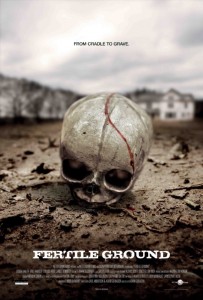 And, right, the last movie on the docket? My hopes were dashed, it was not a sex- and drug-fueled teen massacre. Still, there at least was nudity; only once out of five different films in the genre is a little hard to believe. Not as hard as zero out of five would have been, though! Fertile Ground is a good old-fashioned possession ghost story, with a bit of a pregnancy twist. It rated really well on the tension scale, and decently well on the creepiness scale, and I was actually relieved that the lead actor who looked like Nathan Fillion wasn’t actually him; he would have been entirely too frightening[1], compared to this guy who was merely competent. But it had the same problem that most haunting stories have in modernity, which is that the characters stay in the range of the haunting past the point of all reason. Even though our heroine had an excuse in this particular case, it was only enough to carry her through the first two thirds of the movie. I cannot think of anyone I know in a similar circumstance who would have stayed for that last week or so.
And, right, the last movie on the docket? My hopes were dashed, it was not a sex- and drug-fueled teen massacre. Still, there at least was nudity; only once out of five different films in the genre is a little hard to believe. Not as hard as zero out of five would have been, though! Fertile Ground is a good old-fashioned possession ghost story, with a bit of a pregnancy twist. It rated really well on the tension scale, and decently well on the creepiness scale, and I was actually relieved that the lead actor who looked like Nathan Fillion wasn’t actually him; he would have been entirely too frightening[1], compared to this guy who was merely competent. But it had the same problem that most haunting stories have in modernity, which is that the characters stay in the range of the haunting past the point of all reason. Even though our heroine had an excuse in this particular case, it was only enough to carry her through the first two thirds of the movie. I cannot think of anyone I know in a similar circumstance who would have stayed for that last week or so.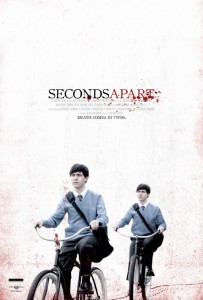
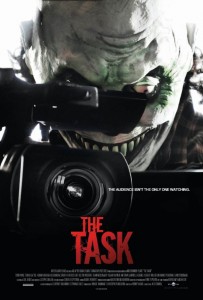
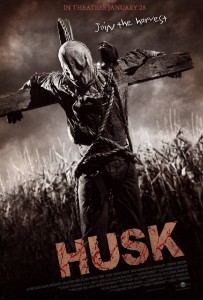
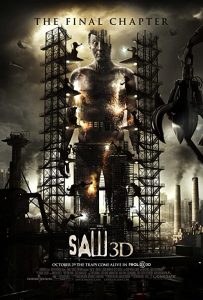 Saw 3D
Saw 3D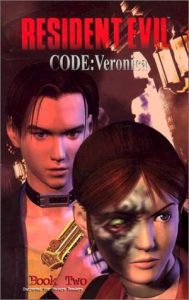 Remember that time when I was reading
Remember that time when I was reading  I do not wish to be too sick to write a review, as what if I fall behind in my reviewings? But contrariwise, what if I write a useless review to which people respond, “Hey, stop writing reviews while you’re sick, Sicky!” And then… well, I haven’t really been able to define the bad thing that happens next, probably because my head is too simultaneously congested and medicine-floaty to concentrate that long. But clearly, consequences will abound. All the same, I’ve written way too much to back down now, even if none of it has anything to do with Honor Harrington just yet.
I do not wish to be too sick to write a review, as what if I fall behind in my reviewings? But contrariwise, what if I write a useless review to which people respond, “Hey, stop writing reviews while you’re sick, Sicky!” And then… well, I haven’t really been able to define the bad thing that happens next, probably because my head is too simultaneously congested and medicine-floaty to concentrate that long. But clearly, consequences will abound. All the same, I’ve written way too much to back down now, even if none of it has anything to do with Honor Harrington just yet.